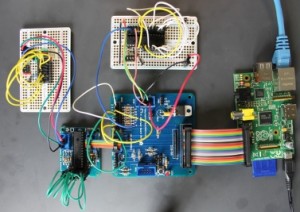Time to retire my Rapsberry Pi Tensorflow Docker project?
I need your advice!
Six years ago I did some experiments using TensorFlow on the Raspberry Pi.
It takes hours to compile TensorFlow on the Pi, and when I started the Pi platform wasn't officially supported. Sam Abrahams found his way thorough the rather scary compilation process, and I used his wheel to build a Docker image for the Pi that contained TensorFlow and Jupyter. That made it easy for users to experiment by installing Docker and then running the image.
I was a bit anxious, as that was my first docker project, but it proved very popular.
Things have change a lot since then. For a while, the TensorFlow team offered official support for the Raspberry Pi, though that has now stopped. You can still download a wheel but it's very out-of-date.
I recently discovered Leigh Johnson's post on how to install full TensorFlow on the Pi. It's slightly out-of-date but the instructions on how to compile it yourself probably still work.
Most Pi-based AI projects now use TensorFlow Lite with or without the Coral USB accelerator, and I'm wondering what to do about my Docker-based Pi project.
Should I
- Announce that work has stopped, and explain why, or
- Try to update the project with a bulls-eye docker image containing TensorFlow 2 and Jupyter?
Is it time to retire my outdated @Raspberry_Pi Tensorflow Docker project? https://t.co/0X4g1bXOrP Most of us now use @TensorFlow Lite on the Pi.
— Romilly's RAREblog (@rareblog) December 8, 2021



Comments
Post a Comment